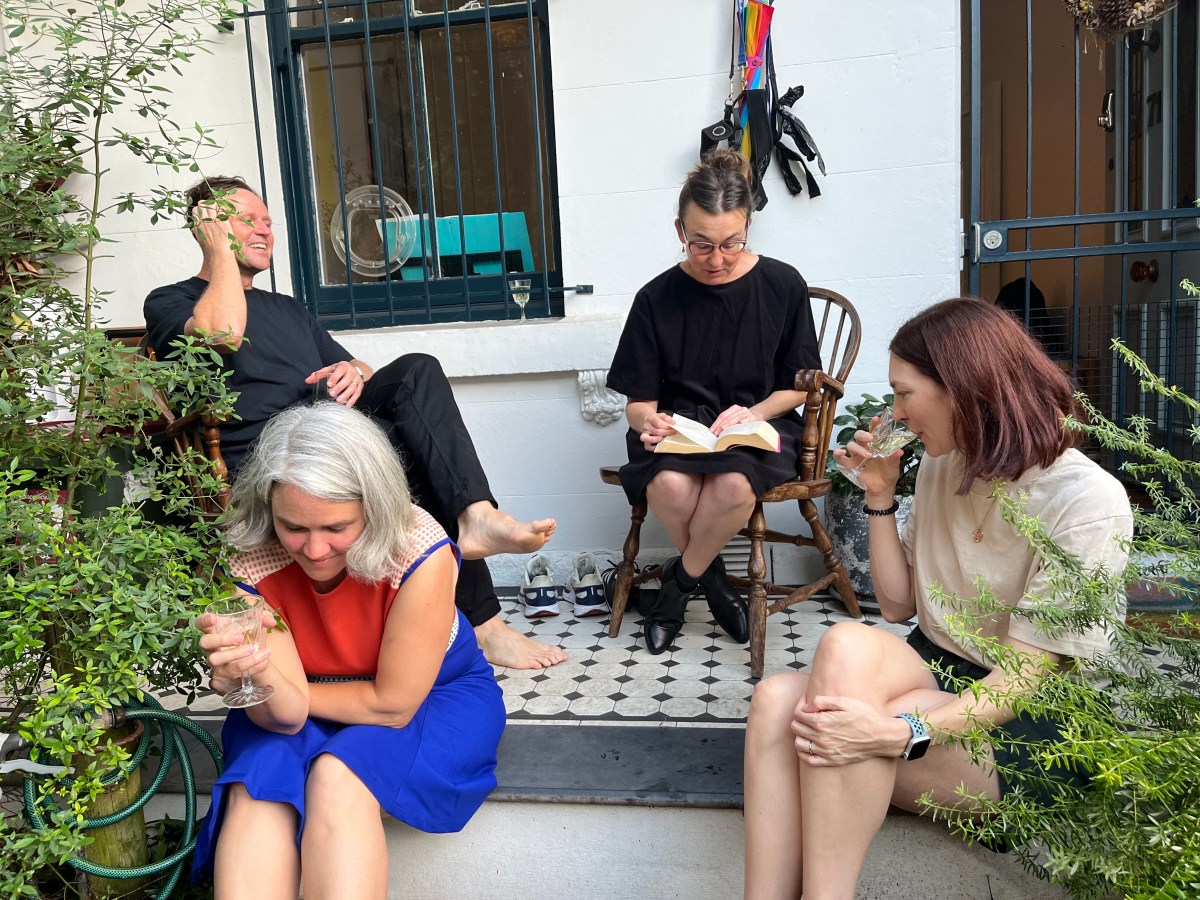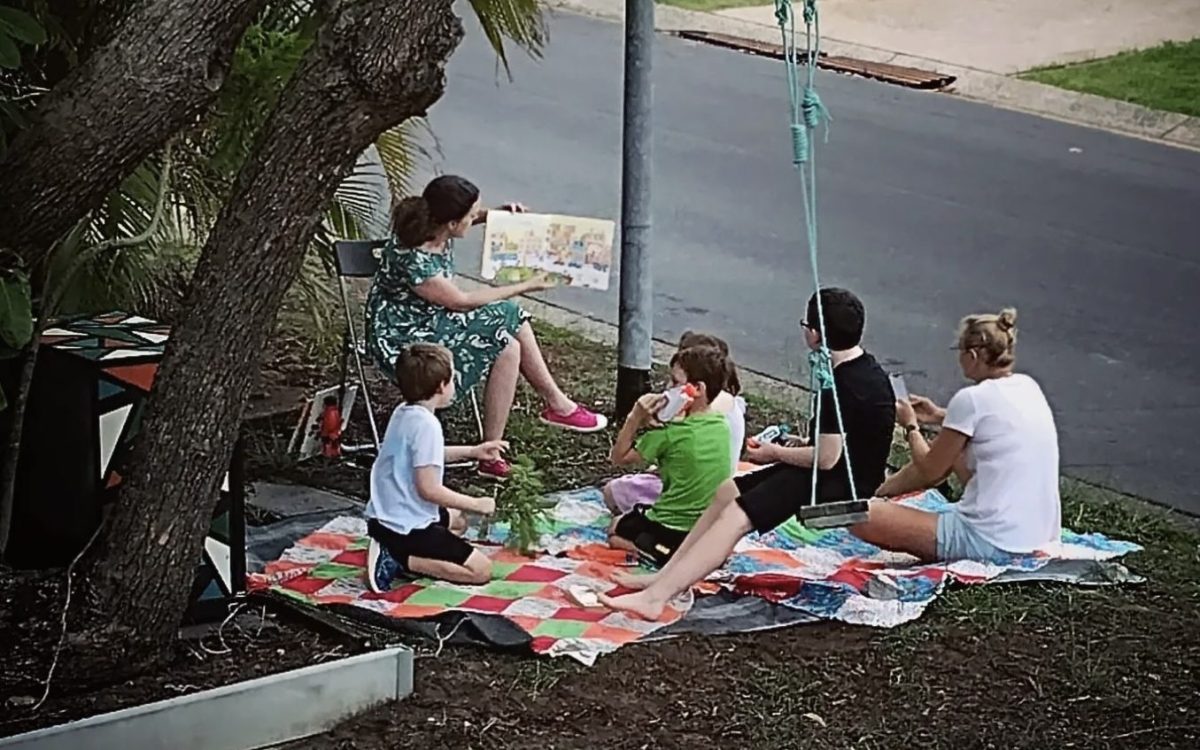In Australia, the organisation Street Library Australia will facilitate its second annual National Shared Reading Week (NSRW) next week, during which more than 100 street librarians will host shared reading events at street libraries around the country to celebrate books and reading with their communities.
It’s always a bit of a mystery fossick when one wanders around to the nearest street library – usually a DIY project – lovingly painted and decorated by the owners to lure passersby to reach in, spy and take away a book or two within this free depository. Among the dog-eared airport thrillers languishing, there may be a few surprises to pique interest.
Street Library Australia is a not-for-profit and a registered charity. Established in 2016, the organisation encourages literacy and the bringing of neighbourhoods together through books and Street Libraries. Street Libraries are small boxes in front yards and community spaces around the country; they are free and easily accessible. There are over 5000 registered street libraries on the Street Library map. The motto is: “Take a book. Give a book. Share a book.”
What your recent street library read?
ArtsHub asked a few authors to tell us what they have recently picked up from a street library – and what they dropped off!
Stuart Wilson says, “I first came across a street library when trudging up and down my local streets, trying to get my newborn son to sleep. The box’s inventory turnover was high – or it was masterfully curated – and, during the pandemic, I witnessed more of these literary lighthouses sprout, as everyone searched for connection during lockdowns. Since then, I’ve dropped off signed copies of my own books in various street libraries. Fittingly, my new book, The 113th Assistant Librarian, features not only a library, but a literary dead drop, continuing the concept of a community silently sharing a love of stories.”
“There used to be a street library in the small village where I live, but the owners have since moved away,” says Lauren Keegan, “It was lovely to stroll past and discover what books had been donated by our neighbours. My youngest daughter was obsessed with lift-the-flap books at the time and was always on the hunt for a new Spot book – we found many!
“I recently discovered a street library in Berry, NSW. I’ll be returning to Berry in late October for the Writers Festival and plan to leave a copy of my debut book: All the Bees in the Hollows.”
Author of The Little Street Library herself, Amy Adeney says, “My favourite thing about our street library is all the fantastic interactions I’ve had with neighbours over the past seven years since we installed it. I love chatting with people about our favourite books and making recommendations for great Australian books and authors they haven’t discovered yet.
“The best book I’ve found in there was a self-published title called Authentic: Ninety-Nine Questions by Glenn Manton. It poses interesting philosophical questions and leaves space to write the answers. During lockdown, my family discussed and answered one question each night over dinner – my kids’ answers are absolute gold! It’s definitely a keeper.”
Mark Mupotsa-Russell, author of The Hitwoman’s Guide to Reducing Household Debt, tells ArtsHub, “We live out of town now, but our last house had a street library at the end of the block, which I checked regularly. My favourite find was A Perfect Spy by John Le Carré. His books were often on that library’s shelves, but this was the exact edition my dad had growing up, with the same oh-so-cracked spine. It was among the first ‘adult’ books I’d read (not understanding any of it), and I was happy to swap in one of my many copies of No Country for Old Men by Cormac McCarthy.”
The whole concept of street libraries is such a great idea that other countries have adopted it too. Graeme Simsion, one of the authors of The Glass House: Menzies Mental Health Novel 1 co-authored by Anne Buist elaborates, “At a boite à livres [box of books] outside the tourist office in a French village, 20-odd books – in French. A stylish and humorous memoir titled Last Glass at Danton (a Lyonnais restaurant) hits the right notes, but author Denis Tillinac’s political and religious leanings get lost in my translation of the blurb.
“With no other choice on the train, I’ll get to read something I might not otherwise have picked up. I leave a copy of The Rosie Project in French: The Lobster Theorem.”
What is the role of a street library ambassador?

Adeney is also an ambassador of the Street Library Australia project and points out that, as she was already an enthusiastic street librarian “it was a natural evolution as I got to know Street Library Australia, their people and purpose”.
“So far, my role involves supporting street libraries and National Shared Reading Week when I have the opportunity. It’s a great way for me to continue to promote the benefits of street libraries in our communities and the value of lifelong literacy – two things about which I’m very passionate.”
Another ambassador, Mayam Master, adds, “Street libraries create a sense of discovery or the unexpected, where you can come across new authors or ideas that you’d never find on your own – it’s priceless. I also love how community conversations and connections deepen due to street libraries. Plus, they promote reuse and sustainability too.”
Read: 5 side hustles for writers
When asked why street libraries are so important, and yet often forgotten about in the larger publishing ecosystem, Adeney responds, “Some of my author friends have expressed concern about people finding their books in street libraries. Unlike local or school libraries, we don’t receive any kind of royalty or payment when our books find new readers in this way. However, this is a fantastic way to access a whole new readership that we may not have necessarily reached! I think people are more likely to take a chance on a new author or genre they find in a street library, rather than a local library or bookshop, as there are no gatekeepers or financial burdens involved – in other words, they have nothing to lose!
“This may then lead to the reader tracking down other books by that author, and discovering a whole new avenue of reading pleasure. Of course, that’s in addition to other street library benefits, such as accessibility and community connection. I think there are wins here for readers, authors and all stakeholders in the publishing ecosystem, really. Anything that gets people reading is good for everyone.”
Master echoes the sentiment, “Street libraries are so important as they make books accessible for people who can’t access libraries or buy books from stores. I also love that you can find old treasures that aren’t stocked by bookshops anymore… I once found Reading Lolita in Tehran [by Azar Nafisi] in a street library – I was thrilled!”
How to get involved
As Street Library Australia’s directive explains, “It can be in your front yard with a book selected from your street library, or it can be in your school hall or community centre with a special guest. It can be a super-short five-minute read, or it can be an afternoon (or late night get-together) of lazy poetry with your friends.”





